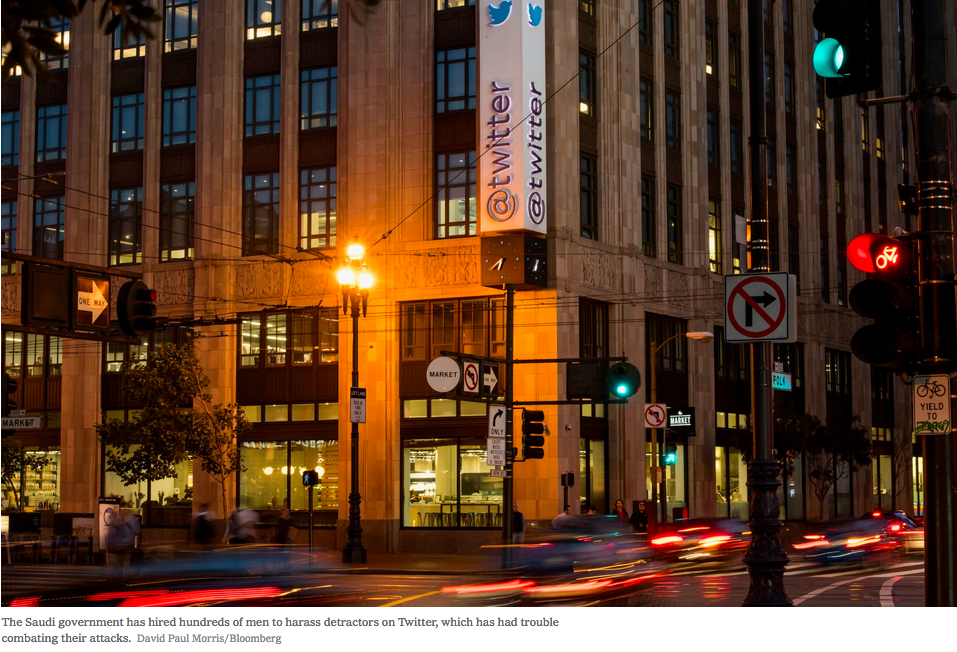Each morning, Jamal Khashoggi would check his phone to discover what fresh hell had been unleashed while he was sleeping.
He would see the work of an army of Twitter trolls, ordered to attack him and other influential Saudis who had criticized the kingdom’s leaders. He sometimes took the attacks personally, so friends made a point of calling frequently to check on his mental state.
“The mornings were the worst for him because he would wake up to the equivalent of sustained gunfire online,” said Maggie Mitchell Salem, a friend of Mr. Khashoggi’s for more than 15 years.
Mr. Khashoggi’s online attackers were part of a broad effort dictated by Crown Prince Mohammed bin Salman and his close advisers to silence critics both inside Saudi Arabia and abroad. Hundreds of people work at a so-called troll farm in Riyadh to smother the voices of dissidents like Mr. Khashoggi. The vigorous push also appears to include the grooming — not previously reported — of a Saudi employee at Twitter whom Western intelligence officials suspected of spying on user accounts to help the Saudi leadership.
Inside the Saudis’ Washington Influence Machine: How the Kingdom Gained Power Through Fierce Lobbying and Charm Offensives
. . .
Eight days after their meeting, the congressional resolution aimed at extracting the United States from what the United Nations labeled “the worst humanitarian crisis in the world” would be defeated — hours after Mohammed was warmly welcomed at the White House at the start of his nationwide tour.
Those twin successes reflected the power of a sophisticated Saudi influence machine that has shaped policy and perceptions in Washington for decades, batting back critiques of the oil-rich kingdom by doling out millions to lobbyists, blue-chip law firms, prominent think tanks and large defense contractors. In 2017, Saudi payments to lobbyists and consultants in Washington more than tripled over the previous year, public filings show.
The strength of the Saudi operation is now being tested amid a global condemnation of the killing of Washington Post contributing columnist Jamal Khashoggi earlier this month in the Saudi consulate in Istanbul — a death the kingdom belatedly acknowledged last week.




